When it comes to studying and traveling abroad to a different country, it’s not just the cost of plane tickets that you need to consider. There are several factors that someone must prepare for, including the different types of cultures that you need to prepare and adapt for.
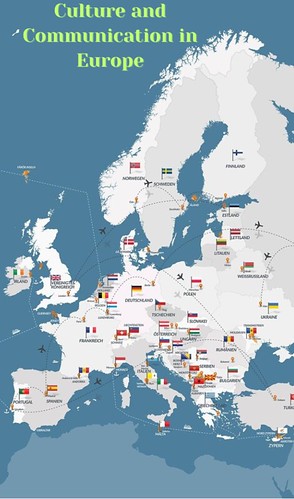
There are, of course, different languages that you must familiarize yourself with, different food that people eat, and even different customs than you are used to. It’s not required to absolutely know them by heart, but it is still important to at least know the basics.
Depending on your travels, you may want prior knowledge on a country’s history. Some may need to find geographical locations. The basics that will be covered in this article are the ways each country communicates. You are entering a completely different country, will meet people that have a completely different background than yourself, while at the same time hearing a completely different language than you are familiar with!
It can be very overwhelming. However, if you do your due diligence by preparing (i.e., researching the country’s language and communication styles), the sense of overwhelm can turn into excitement.
How do you prepare?
If you’re headed to Europe, let me take you on a journey that can help you prepare for your travels. This article will share cultural, communication, and other pertinent information about the cultures from:
• Germany
• Czech Republic
• Poland
• Hungary
• Slovakia
• Austria
• Switzerland
• France
• England
Germany
In Germany, towns, cities, and families are not very big. Families usually only have one or two children. Many families live in rural areas and commute to the city for work.
Relationships between families depend on mutual trust in German culture. If the children are honest and open to their parents, they are given a lot of freedom.
Germany is known for having deep and wide-ranging intellectual conversations. They prefer to have these types of conversations rather than small talk. Germans value honesty and openness. When you are preparing to travel there, be sure to be ready to feel judged because you will not receive the regular small talk/compliments that you may get in the United States. Don’t take it as a slight; Germans are just merely stating their honest opinion. Direct and honest communication is common in Germany, and it is much appreciated.
The German language does sound harsh, and their attitudes could come off reserved or stiff, but as you get to know Germans, they can become true friends. Along with this direct communication style, punctuality is important. You don’t want to be too early if you are meeting with someone, and certainly not late.

Czech Republic
In Czech culture, family bonds are strong. This is due to the tradition of regular holidays together (often to Mediterranean beaches or Czech National Parks), usually in the summer months of July and August. Sunday lunches are common in families, reflecting the importance of communal meals. Also, the Czech Republic has the highest beer consumption in the world, which also is proof to their appreciation of being with friends and family.
Cottage culture is also extremely common, with many families owning small cottages they travel to whenever they can.
Prague has several churches throughout the city. However, attendance from citizens is not very common, indicating that they are more of a secular society.
Despite a reputation for dark humor, Czechs are mostly well-mannered. Children are taught to be polite to others, especially to their elders, from a young age. Saying "Dobrý den" (good day) to acquaintances is common, and offering one's seat on the metro to the elderly or children is expected. Also, removing shoes when entering someone's home or office is common cultural practice, showing a respect for cleanliness.
Unlike in Western cultures, personal space is less emphasized, reflecting a more familiar and personal approach to social interactions.
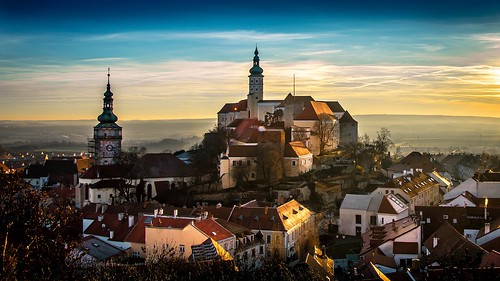
Poland
Krakow is the capital of Poland, and the second largest city in the country. During World War II, much of the city was destroyed. However, much of their cultural heritage was able to be kept. For example, in southern Poland near the border, the Baroque church has been standing since the 17th century. There is also the Malbork Castle, located further north, that has been standing since the 13th century!
Polish people like to keep active, especially with their families. They keep busy with trips and family get-togethers. On Sundays, families usually gather for lunch with immediate and extended family members.
Polish is the official language. However there are several dialects that have branched off from old tribal divisions, once again showing their long-standing culture and history.
Like many European countries, the Polish prefer direct conversations. They are not afraid to state their opinions and even criticisms. The belief of the Polish is that the more direct a person is, the greater the respect that is given to them.
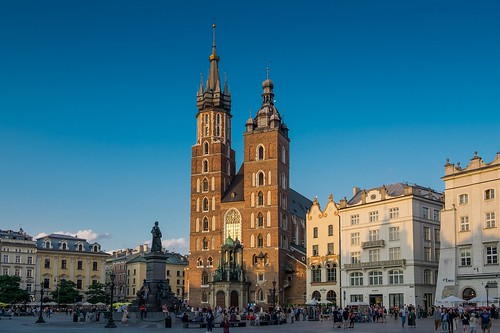
Hungary
In Hungarian social settings, it should be known to stay away from topics like politics and sports during small talk. These subjects are often viewed as controversial and could potentially lead to disagreements.
It’s also considered inappropriate to say “cheers" with a drink at the table, as this action is associated with both sad and serious occasions, like a death or any kind of celebration of life of someone.
Hungarians celebrate Farsang, a pre-Lent festival that contains some Christian traditions with ancient pagan rituals. This festival includes masquerade balls and parties, where Hungarians wear colorful costumes and masks, go to parties, and celebrate before the solemn period of Lent begins.
Another event on Hungary's cultural calendar is the Budapest Spring Festival, a two-week-long festivity featuring folk and gypsy song and dance performances. Regarded as the country's most prestigious cultural event, it serves as a platform to showcase the rich musical heritage of local artists alongside internationally acclaimed jazz, classical, and opera stars from around the globe.

Slovakia
Located in Central Europe, Slovakia is known for having rich culture that has been passed down from its long history.
Slovak families, typically featuring one or two children, epitomize close-knit bonds, nurturing strong connections within households. Unlike cultures that have traditional gender roles, men and women in Slovakia share household chores, financial responsibilities, and decision-making duties; this fosters a sense of equality and collaboration.
Slovak, the official language, is like West Slavic languages, particularly Czech, while also having a similar dialect to Latin, German, and English. Communication in Slovakian culture is characterized by having a preference for direct conversation, but at the same time polite, emphasizing clear expression while also considering the feelings of others. Maintaining eye contact is very important in Slovakian communication, showing both politeness and sincerity. Conversations often occur at a shoulder-length distance, with physical contact during dialogue being uncommon.
These cultural norms show the importance of personal space and non-verbal cues in interpersonal communication, making mutual understanding and politeness possible in communication.

Austria
Austrians are known for having pride in their country. They value their homeland, which contains sixty percent of the Western Alps.
Austrians also value independence within oneself. Both parents of a household usually work, so the eldest children are expected to learn how to cook and clean for themselves.
The official language of Austria is German. However, other languages that are spoken include Turkish, Serbian, Slovene, Croatian, and Hungarian.
A typical person in Austria is considered open-hearted, but only to those they know. When it comes to situations or conversations with strangers, they are more closed off. During conversation, they prefer to speak directly and honestly to get to the point of the conversation. Maintaining eye contact during conversation is considered polite and respectful.
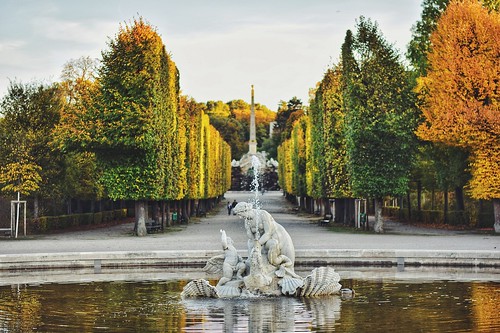
Switzerland
Located in the beautiful Alps, Switzerland is a land of pristine lakes, flowing streams, and a resolved commitment to environmental stewardship. The people are proud of their clean waterways. Even in bustling urban centers, Swiss people cherish the opportunity to swim in local lakes and rivers, embracing a deep connection to nature.
Reflecting their national motto, "Unity, yes; uniformity, no," Switzerland celebrates diversity and individuality, valuing the uniqueness of their communities.
In Swiss households, pets are extremely valued, being treated like family.
Mealtimes also hold significance, with punctuality being important to people so there is time for shared memories and the general day to day of each person’s life.
Housework is a shared responsibility among family members, with men actively participating in cooking and laundry tasks.
Switzerland is very unique with various different dialects spoken across the country. Swiss German is the most common, while French is more commonly spoken in the west, and Italian in the south. In the Alpine valleys, Romansh, a language derived from ancient Latin, is prevalent. Despite the number of different languages spoken, Swiss people are not inclined towards small talk or digging into others' personal lives, preferring direct and honest communication. Speaking one's mind without sugar-coating opinions is considered a sign of respect, as directness is valued for its ability to cut through pretense and develop genuine dialogue. Far from being confrontational, this straightforward approach to conversation allows Swiss people to engage into meaningful exchanges, expressing a culture that cherishes authenticity and integrity.

France
France is known for its rich artistic history that includes architecture and culinary skills. With their talents and skills in artisanship, it’s no secret that their motto is “joie de vivre,” or the joy of living.
French people are known for their humor and making fun of others, while at the same time, they have a culture where expressing emotions and gratitude is customary.
Political discourse is very common in France, with animated conversations being a staple, yet friendships endure beyond differing opinions.
Interruptions in conversation are not frowned upon, reflecting a culture of engagement and lively debate.
Participating in protests is also common, showing a deep commitment to social causes that are occurring around the country and their government.
When greeting, the customary cheek-kiss (faire la bise) symbolizes warmth and familiarity, particularly among friends and family, and it is not seen as odd for men to do this, as well as a standard handshake.
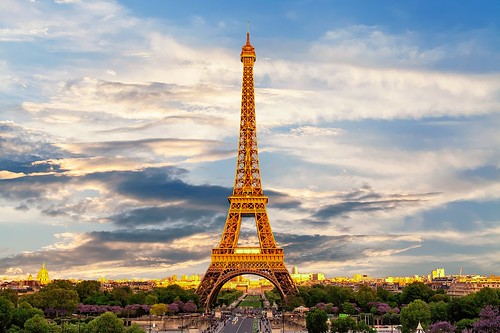
England
England is very different with its communicative culture when compared to its surrounding countries. England’s style of communication is more indirect and sensitive to others. The British opt for more polite talking, even in challenging situations. English people speak more vaguely, where phrases such as "perhaps" and "possibly" are used often to maintain harmony and prevent the conversation from taking a negative turn.
Humility is also highly valued in English culture, and individuals often try to appear modest and unassuming in their self-image. Self-deprecation serves as a popular form of humor, allowing people to bond over shared imperfections and quirks. Dry wit is common, adding an element of sophistication to interactions and showcasing the English knack for clever wordplay and subtle humor.
In essence, England's style of communication shows a unique balance of politeness, humility, and wit, creating an environment where conversations are both engaging and harmonious.

Deciding to explore outside of Europe? To ensure that your international trip goes smoothly (but what trip really does?), research at least some of the country’s basic language and communication styles.
Graham Peterson is a junior at Coe College. He is majoring in Business Administration and minoring in Communication studies. He is a captain on the varsity tennis team and is Vice President at the Tau Kappa Epsilon Fraternity chapter at Coe. He is originally from Lincoln, Nebraska.
